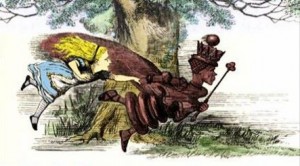 An incomplete area of study in philosophy and science is the hows and whys of social cooperation. We can easily assume that social organisms gain benefits in terms of the propagation of genes by speculating about the consequences of social interactions versus individual ones, but translating that speculation into deep insights has remained a continuing research program. The consequences couldn’t be more significant because we immediately gain traction on the Naturalistic Fallacy and build a bridge towards a clearer understanding of human motivation in arguing for a type of Moral Naturalism that embodies much of the best we know and hope for from human history.
An incomplete area of study in philosophy and science is the hows and whys of social cooperation. We can easily assume that social organisms gain benefits in terms of the propagation of genes by speculating about the consequences of social interactions versus individual ones, but translating that speculation into deep insights has remained a continuing research program. The consequences couldn’t be more significant because we immediately gain traction on the Naturalistic Fallacy and build a bridge towards a clearer understanding of human motivation in arguing for a type of Moral Naturalism that embodies much of the best we know and hope for from human history.
So worth tracking are continued efforts to understand how competition can be outdone by cooperation in the most elementary and mathematical sense. The superlatively named Freeman Dyson (who doesn’t want to be a free man?) cast a cloud of doubt on the ability of cooperation to be a working strategy when he and colleague William Press analyzed the payoff matrixes of iterated prisoner’s dilemma games and discovered a class of play strategies called “Zero-Determinant” strategies that always pay-off regardless of the opponent’s strategies. Hence, the concern that there is a large corner in the adaptive topology where strong-arming always wins. And evolutionary search must seek out that corner and winners must accumulate there, thus ruling out cooperation as a prominent feature of evolutionary success.
But that can’t reflect the reality we think we see, where cooperation in primates and other eusocial organisms seems to be the precursor to the kinds of virtues that are reflected in moral, religious, and ethical traditions. So what might be missing in this analysis? Christophe Adami and Arend Hintze at Michigan State may have some of the answers in their paper, Evolutionary instability of zero-determinant strategies demonstrates that winning is not everything.… Read the rest